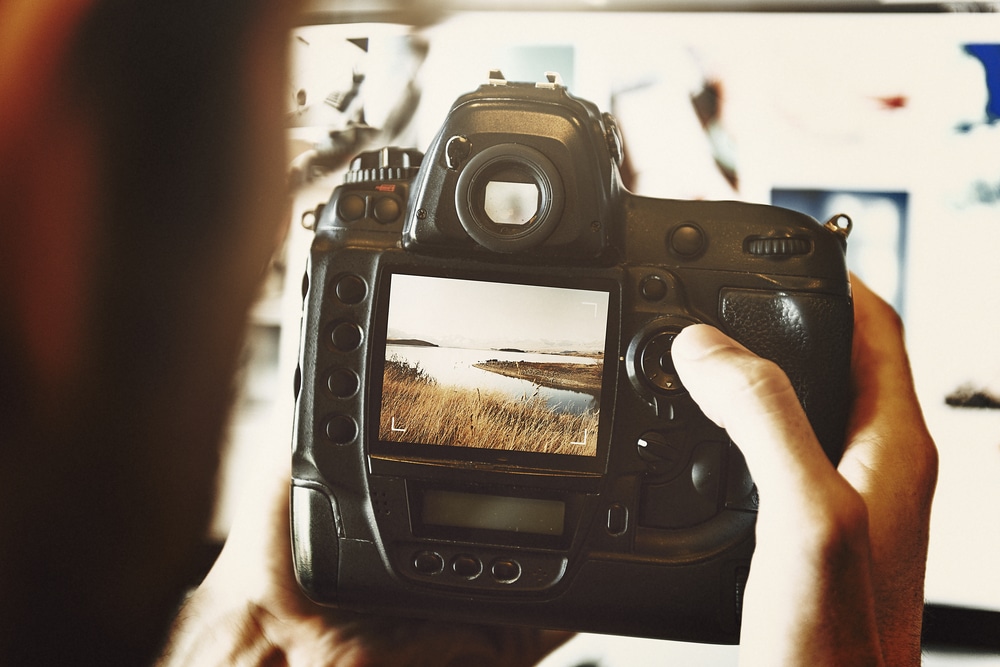What Is Digital Photography?
Digital photography informs, communicates, represents, reflects and influences us. Visual images are everywhere in contemporary culture – as artworks, adverts, and social media posts to name a few.
Digital photographers can work as artists, for newspapers and magazines, in fashion, advertising or specialise in portraiture or wedding photography. A photography career also offers a lot of creative and professional freedom.
What Courses Are Available?
Griffith College Dublin has a three-year BA (Ordinary, Level 7) in photography. Dun Laoghaire IADT and DIT both offer four-year BAs (Honours, Level 8). Colaiste Dhulaigh has a one year level 6 HND course.
Studying Digital Photography In College
Students will learn practical skills. They will learn various photographic techniques and processing digital images. Many courses also offer business and management skills.
Students will also learn about the historical and cultural context of photography as well as theory.
Colleges of Further Education offer one year (Level 5) certificate courses for budding photographers. These courses are more vocationally oriented. They focus on practical skills such as film and digital photography, image downloading, Photoshop and image manipulation, and post-production. Some further education programmes combine these skills with media production or journalism.
Applicants may need to submit a portfolio as part of their application. Check with the course provider for further details.
Career Options
You will need several skills to be a professional photographer. These include good eyesight, excellent attention to detail, a creative streak, patience, and good technical/IT skills. People skills are also important. Ideally, you should also have a good head for business and financial budgeting.
Related Jobs
Jobs directly related to your degree include:
- Advertising art director
- Film/video editor
- Graphic designer
- Magazine features editor
- Medical illustrator
- Photographer
- Press photographer
- Television camera operator
Jobs where your degree would be useful include:
- Art therapist
- Digital marketer
- Media planner
- Multimedia specialist
- Museum/gallery curator
- Stylist
- VFX artist
- Visual merchandiser
- Web content manager
- Web designer
Further Study
Having completed a course in photography, depending on the area you wish to get into, you could consider furthering your studies in areas such as graphic design or film production. It is often the case that graduates of photography will study a business course to set up their own photography business.
FAQ
Do I need any photography experience or qualifications to take one of these courses?
No prior knowledge, experience or qualifications are needed. These courses have been designed for absolute beginners and keen amateurs.
Can one of these courses help me to start a career in photography?
On completion of a photography course, you will have the skills to specialise in wedding photography, portrait photography, fine art photography, night photography, studio, product shots, landscape and fashion photography and more.
Where can I study Digital Photography?
Explore your options here.
Did you know?
- Photographers used to hand colour their images before the advent of colour film. This was both a time- and attention-consuming procedure. Colours were applied with a fine brush. The colours were then fixed into place by breathing upon the plate.
- The Oldest Surviving Image Is Almost 200 Years Old. Not only was it taken almost 200 years ago, but it took 8 hours to capture! The photo was taken by Joseph Niepce and named ‘view from the window’.
- Apparently, the left side of our faces looks better in photos than the right side. A study conducted by Kelsey Blackburn and James Schrillo from Wake Forest University confirms this. Their study shows that the left side of our face exhibits a greater intensity of emotion. Because of this, we perceive it as being more attractive.
Further Resources
Photography Ireland – forum and resource site for photographers
Irish Professional Photographers Association
Press Photographers Association of Ireland












Comments